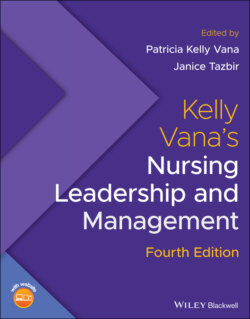Читать книгу Kelly Vana's Nursing Leadership and Management - Группа авторов - Страница 167
The Dawn of Professional Nursing
ОглавлениеFlorence Nightingale did not invent the training of nurses all by herself—it took a “village” of scientific advances in knowledge, nineteenth century social forces including rapid industrialization, women's desire for greater independence, and the work of many other strong and smart women and men. But let's start with Nightingale because she is an integral part of nursing's heritage.
Florence Nightingale first attracted international attention because of her work for the British army during the Crimean War, 1853 to 1856, when Britain allied with France and Turkey to prevent Russian expansionism. A key factor in this war was that newspaper reporters, for the first time, came out and witnessed the fighting and destruction. Among other war news, the English were horrified to read about the terrible state of their wounded men. They demanded action. Thus Nightingale, accompanied by 38 nurses, went to the large British military hospital at Scutari, a Turkish army barracks near what is now Istanbul. Conditions were ghastly. Most of the men were dying from typhus, typhoid, cholera, and dysentery rather than from their wounds. The place was filthy. “There was no clean linen; the clothes of the soldiers were swarming with bugs, lice, and fleas; the floors, walls, and ceilings were filthy; and rats were hiding under the beds” (Fee & Garofalo, 2010, p. 1591). Nightingale rose to the challenge—through sound management, political understanding, firm leadership, and good use of her society connections back in England. Mortality among the soldiers plummeted and the British public revered Nightingale as the “Lady with the Lamp.” In Nightingale's honor, the public collected the enormous sum of £45,000 (almost two million dollars U.S. today). In 1860, Nightingale used this money to set up a nurses' training school at St. Thomas's Hospital in London. In 1873, three training schools were founded in the United States, in Connecticut, Massachusetts, and New York, using Nightingale's principles. Nurse training schools were based in hospitals where students typically worked full time while hearing lectures in their off duty hours.
